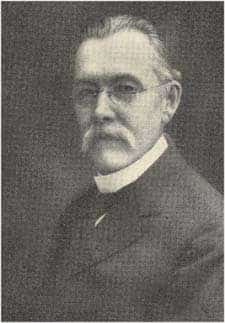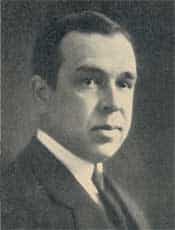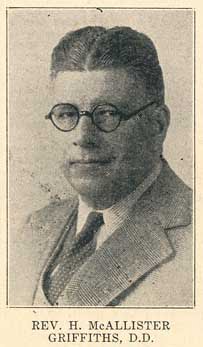A Great Loss for Westminster Seminary
 The new orthodox seminary, Westminster, had only been open for two weeks on October 11, 1930, when one of the premier faculty members of that theological institution, and before that, Princeton Theological Seminary, Dr. Robert Dick Wilson, died suddenly. He had been blessed with excellent health for most of his teaching career. But after a brief week of illness, he went into the presence of the Lord.
The new orthodox seminary, Westminster, had only been open for two weeks on October 11, 1930, when one of the premier faculty members of that theological institution, and before that, Princeton Theological Seminary, Dr. Robert Dick Wilson, died suddenly. He had been blessed with excellent health for most of his teaching career. But after a brief week of illness, he went into the presence of the Lord.
This writer’s father, who studied under Dr. Wilson at Princeton from 1927 to 1929, told me that Robert Dick Wilson planned his life in three phases. Phase one was to learn all the extant languages of, or related to, the Scriptures. And he did have a working knowledge of somewhere between twenty-five and forty-five languages (accounts vary). The second phase was to study all the higher critical attacks upon the Bible. And the last phase was to publish in defending the Scriptures against all of those higher critical attacks upon the sacred Word. It was with regards to this last phase that he commented that he had come to the conviction that no man knows enough to attack the veracity of the Old Testament.
One humorous incident in his teaching career at Princeton was the time that a woman had enrolled in his class. One day, as was usually the case, he was disheveled in his attire when he came to class. Often the suspenders which held up his pants would be pinned by two safety pins. Teaching animatedly, the two pins became undone with the result that his pants slid to the floor. Embarrassed immensely, and sliding down to raise his pants again, he could only cry out “Where is Mrs. Jennings? Where is she?,” fearing she was in class in the back row. When told that the lone woman in question had cut his class to study in the library, Dr. Wilson responded, “Praise God from Whom All Blessings Flow.”
Words to live by: Why would an accomplished scholar like Dr. Robert Dick Wilson leave his life’s calling at Princeton Seminary in 1929 to go to a brand new theological institution where there was no guarantee of funds for either teaching or retirement? The answer is that Dr. Wilson knew that a person cannot have God’s richest blessings, even in teaching the truth, when the opportunity to teach that truth is gained by corruption of principles. And the reorganization of Princeton’s Board of Trustees, with the resulting addition of two members who had signed the Auburn Affirmation, was just that—a corruption of principles. May we take a similar stand for righteousness, regardless of the outcome to our lives. May we always stand for the infallible truth of God’s Word.
For further study: The PCA Historical Center, which hosts This Day in Presbyterian History, houses among its many collections the Papers of Dr. Robert Dick Wilson. As one means of promoting that collection, the Historical Center has posted a number of articles about Dr. Wilson on its web site, and these can be found here.



